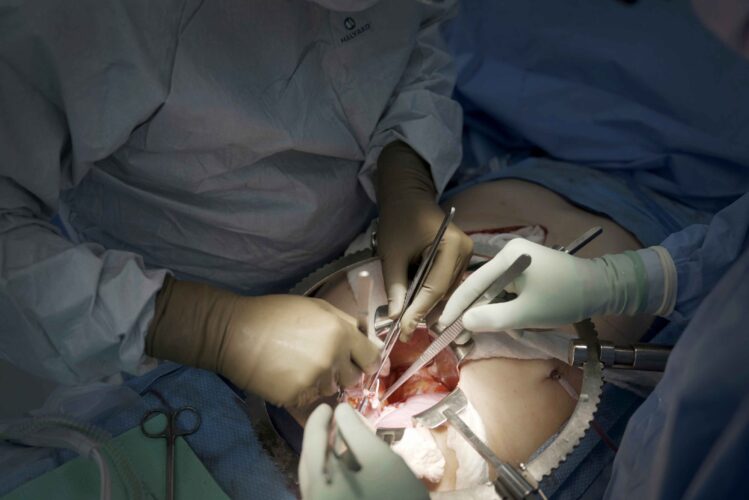Maryland resident Lawrence Faucette, the recipient of the world’s second pig-to-human heart transplant, passed away on Monday, six weeks after his highly experimental surgery. Despite his quick passing, Faucette, 58, was nevertheless able to provide his doctors with valuable data, making a meaningful contribution to the field of xenotransplant research.

When Lawrence Faucette arrived at the University of Maryland Medical Center in late September, he was dying from end-stage heart failure, requiring resuscitation. His advanced condition made him ineligible for a conventional heart transplant, but an emergency authorization from the Food and Drug Administration allowed him to volunteer for the experimental procedure. On September 20, Faucette was successfully implanted with a genetically modified pig heart, fulfilling his wish of having “just a little bit more time” to spend with his wife and children.
Learn the benefits of becoming a Valuetainment Member and subscribe today!
Attempted animal-to-human organ transplants—otherwise known as xenotransplants—have failed in clinical trials for years, as the human immune system will almost always begin attacking the foreign tissue. Recent breakthroughs have allowed scientists to genetically modify donor animals to make their organs more compatible, opening up new treatment options for those in need of transplants.
According to the team of doctors that oversaw Faucette’s transplant and treatment, the patient appeared healthy for more than a month, eventually being able to walk and exert himself during physical therapy. However, he began to show signs of rejecting the new heart in the second month, and his condition declined until his passing on Monday.
The same Maryland medical team performed a similar procedure last year, conducting the first-ever pig heart transplant into a 57-year-old man named David Bennett. Bennett likewise passed after two months when the new heart failed, possibly due to viral bodies discovered inside the organ.
“We mourn the loss of Mr. Faucette, a remarkable patient, scientist, Navy veteran, and family man who just wanted a little more time to spend with his loving wife, sons, and family,” said a statement released by the hospital after Faucette’s death. “Mr. Faucette’s last wish was for us to make the most of what we have learned from our experience, so others may be guaranteed a chance for a new heart when a human organ is unavailable. He then told the team of doctors and nurses who gathered around him that he loved us. We will miss him tremendously.”
“Larry started this journey with an open mind and complete confidence in Dr. Griffith and his staff. He knew his time with us was short, and this was his last chance to do for others,” Faucette’s wife Ann continued. “He never imagined he would survive as long as he did, or provide as much data to the xenotransplant program. He was a man who was always thinking of others, especially myself and his two sons.”
Scientists from the University of Maryland Medical Center and other institutions remain hopeful that xenotransplants from pigs and monkeys could one day make up for the massive shortage of donor organs. According to the Associated Press, more than 100,000 people remain on the nation’s transplant list, most requiring kidneys.
Should further transplants produce promising data, the Food and Drug Administration may eventually allow formalized studies into the efficacy of animal donors.


















Add comment